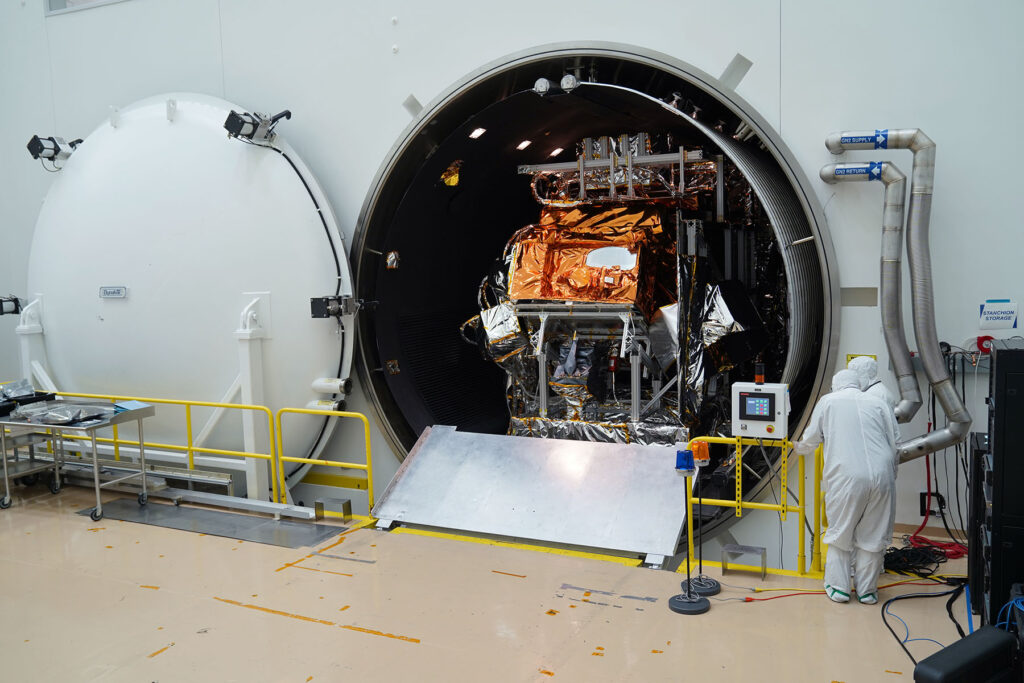The US National Oceanic and Atmospheric Administration’s (NOAA) Joint Polar Satellite System-2 (JPSS-2) satellite has completed its thermal vacuum testing, bringing it a step closer to launch.
The test demonstrates that the spacecraft and all its instruments will perform successfully when exposed to the harsh environments of space.
Andre Dress, JPSS flight project manager at NASA’s Goddard Space Flight Center in Greenbelt, Maryland, said, “I can absolutely say with 100% certainty that the observatory is working great. All the instruments are performing great, and we’re going to meet all our requirements – and then some.”
JPSS-2, the third satellite in the Joint Polar Satellite System series, is slated to launch on November 1, 2022, from the Vandenberg Space Force Base in California and will be renamed NOAA-21 after reaching orbit.
JPSS-2 will scan the globe as it orbits from the North to the South poles, crossing the equator 14 times a day. From 512 miles above Earth, it will observe atmospheric conditions such as temperature and moisture, along with extreme weather, including hurricanes, floods, wildfires and drought. Once in orbit, it will continue the work of its predecessors NOAA-20 and the NOAA-NASA Suomi National Polar-orbiting Partnership (Suomi-NPP).
The thermal vacuum test simulates the vacuum of space and the harsh temperature extremes the satellite will experience while in Earth’s orbit.
Chris Brann, deputy project manager for the JPSS flight project at Goddard, said, “The satellite has to keep itself warm enough in a cold state and cool when it’s in a hot state, and still provide the science performance as it’s going through the temperature transitions. If it works at the two extremes of hot and cold, it will work in between.”
To read more about the project and instrumentation, click here.



